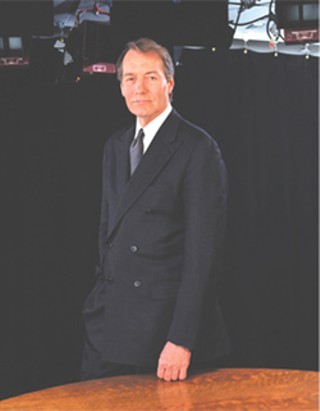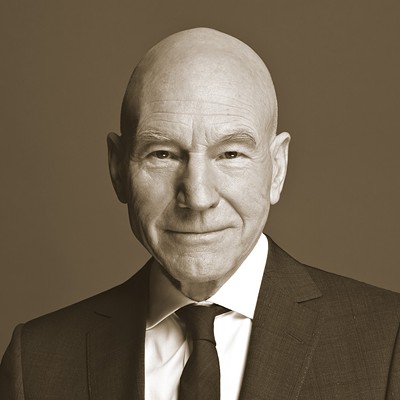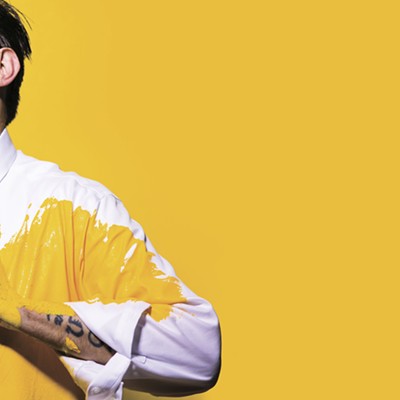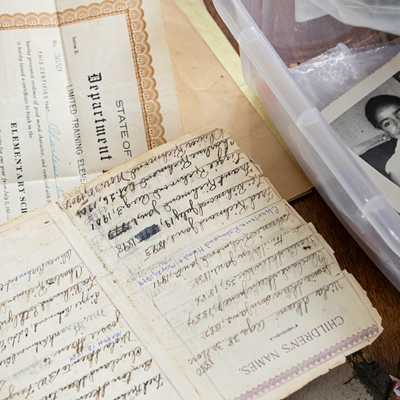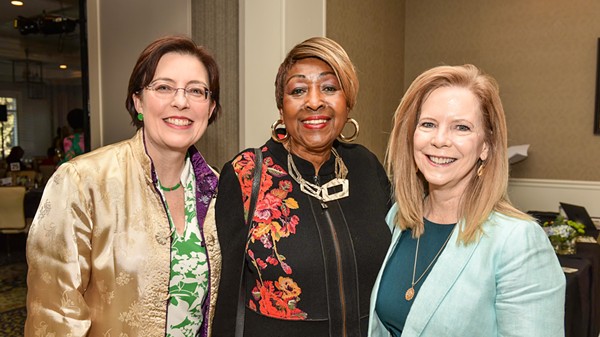FOR ALMOST 20 years, broadcast journalist Charlie Rose has hosted the unique PBS show that bears his name. Interviewing a wide range of newsmakers from every discipline under the sun, the Henderson, N.C., native relies on a conversational, compelling format that some have accused of rambline, but admirers say is far more genuine thatn the tightly scripted, generic soundbite interviews that have come to characterize the American media.
I sat down with Rose about an hour before he was to accept a Lifetime Achievement Award in Entertainment Journalism at the Savannah Film Festival.
You’ve always been a news guy to me, but you’re getting an award for Entertainment Journalism. How do you feel about that?
Charlie Rose: It’s the obvious question. Why am I getting an award as an entertainment journalist? What I’m talking about in my show every night is the culture. The world we live in, the human condition, and the things that impact on it. It’s war and peace, it’s medicine, it’s religion, it’s a whole range of things. So I’m having a series of conversations every week about that. And you’re right -- maybe one-fifth of them are about entertainment.
But in the broader sense -- books, movies, plays, opera, sports -- at best 25 percent and probably not more than say 20, all of those things come together. It’s an essential part of who we are. And we look to movies and we look to theatre to tell us in a profound way about truth, and to speak, as they say, truth to power. So I’m happy to be considered an entertainment journalist. Because my curiosity certainly includes entertainment.
The media has taken a bit hit in terms of credibility the past few years. But journalists always reflect the society they live in. Beyond what’s happening within the industry, what are some societal trends that are hurting journalism now?
Charlie Rose: There’s a place for gossip journalism, there’s a place for the long-form conversation I do, and magazine formats like 60 Minutes, for what Anderson Cooper does, there’s a place for all of it. There’s a place for C-SPAN. In fact one of the best things I’ve heard recently was that the guy who created C-SPAN, Brian Lamb, was given the Medal of Freedom. And he deserves it. What he’s done is extraordinary. He created something that to me served a valuable purpose.
I think the place journalism suffers more than the leaking from entertainment into news, what it suffers from mostly is I think just competence. Competence. I’m amazed, because I’m the subject of stories, and for the most part they’re good or harmless, one or the other. I taped a conversation yesterday with a politician and then I was taping a conversation right after that with the people who were from, the real life characters that American Gangster were made from. It’s a fascinating movie which I urge you to see. The politician said something to me after our interview that was very critical of the movie but he said it to me and I didn’t know whether he was saying it to me privately or didn’t care. I then asked a question that reflected what he had said. But in the end I decided not to use it, because I hadn’t had a chance to say to him, in fairness, were you saying that to me?
I’m written about all the time and nobody calls me to ask me. They’ll make a statement about you -- “Charlie Rose did this because” -- without saying A) did you do it, and B) did you do it for this reason? The courtesy and the respect and the sense of accuracy and the level of competence bothers me more than any issue of diffusion between news and entertainment.
A chain is only as strong as its weakest link, and if we have a producer who’s not doing the research and who is giving me facts that aren’t right, that’s a problem.
As salaries continue to rise at the top levels of journalism, do you feel the media has lost touch with the concerns of American working and middle class people?
Charlie Rose: I think that’s a big issue, I really do. Someone said to me the other day, “Larry King makes $7 million a year.” and Katie Couric makes $16 million. Katie Couric is a very good journalist. Doesn’t mean she’s a great anchor, but she’s a very good journalist.
I’m not concerned that people make that, I wish I made $16 million. But what I do wish is that we need a place to go to make sure we’re staying in touch. With the real America. It’s incumbent on us not to live in an air-conditioned room. It’s not a question of money.
There’s another element of all this that I am guilty of, that other people don’t approve of. I know a lot of newsmakers. I like them. I have dinner with them. They’re my friends, in some cases. And some people don’t like that. It has never affected anything that I would say about anybody or any question I would ask them.
Some people think there ought to be a divorce. You shouldn’t know people, you shouldn’t have dinner with people. I refuse to let that be my guide. If I covered the Department of Agriculture for the Wall Street Journal, perhaps I shouldn’t be having dinner with the Secretary of Agriculture every night. But I’d be a better reporter if I had some access to the Secretary of Agriculture, better than everybody else.
A reporter that I admire enormously is Sy Hersh for the New Yorker. He’s got sources deep within the middle level of institutions like the CIA. He’s not learning what he learns by hanging out with Mike Hayden or Donald Rumsfeld or Bob Gates. He learns it by working his sources.
If you’re good at what you do, you’re not going to let all that get in your way. You’re not.

